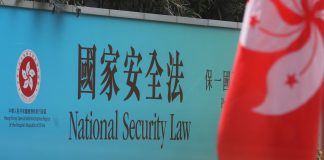PETALING JAYA,Nov 10: Two medical groups have questioned Putrajaya’s move to implement a conditional movement control order (CMCO) in all peninsular states except Perlis, Pahang and Kelantan, saying it is unnecessary to impose another wide-scale lockdown.
The Academy of Medicine of Malaysia (AMM) and the Galen Centre for Health and Social Policy both told FMT the CMCO would not solve the Covid-19 crisis, as it was only capable of temporarily reducing the incidences of new cases.
Over the weekend, a month-long partial lockdown was ordered for Kedah, Penang, Perak, Negeri Sembilan, Melaka, Johor and Terengganu.
The government said this was due to the rising number of Covid-19 infections in the affected states. The CMCO for all seven states began on Nov 9 and will end on Dec 6.
AMM said it was puzzled by the government’s decision as there were no indications of a surge in cases beyond Selangor, Kuala Lumpur and Putrajaya.
“Even in Penang, many of the recent cases in the past few weeks have occurred in the prisons and the number of community cases is relatively small, which could have been dealt with by conducting aggressive tracing, testing and isolation.
“We call upon the National Security Council (MKN) and the health ministry to explain the science behind this decision to impose a blanket CMCO, which will have deleterious effects on the livelihoods of many people.”
It also said the Klang Valley had ample capacity to deal with new Covid-19 cases, which meant movement restrictions were unnecessary.
Galen Centre CEO Azrul Khalib said while it was tempting to press the panic button, measures such as the CMCO were only intended to manage the spread of infectious diseases within the borders of a defined area, not across several states.
“MCOs are blunt instruments and are temporary stop gap measures at best. They are not solutions. They are not magic wands for an outbreak of this type of disease, and they cannot be imposed for too long or else they will destroy local economies and livelihoods,” he said.
Following the lockdown, Azrul said, there could be a lull and perceived decrease in the number of new infections, but he predicted another rebound unless people, especially politicians and civil servants, complied with the SOPs.
He said it was pointless whether lockdowns were partial or not unless Malaysians understood the importance of safe practices such as wearing face masks and washing their hands.
“It is impossible at the moment to predict when and how the situation will improve, in the absence of a safe and effective vaccine. No one has a crystal ball. However, compliance with SOPs is the key to ensuring that the numbers remain manageable.”
















